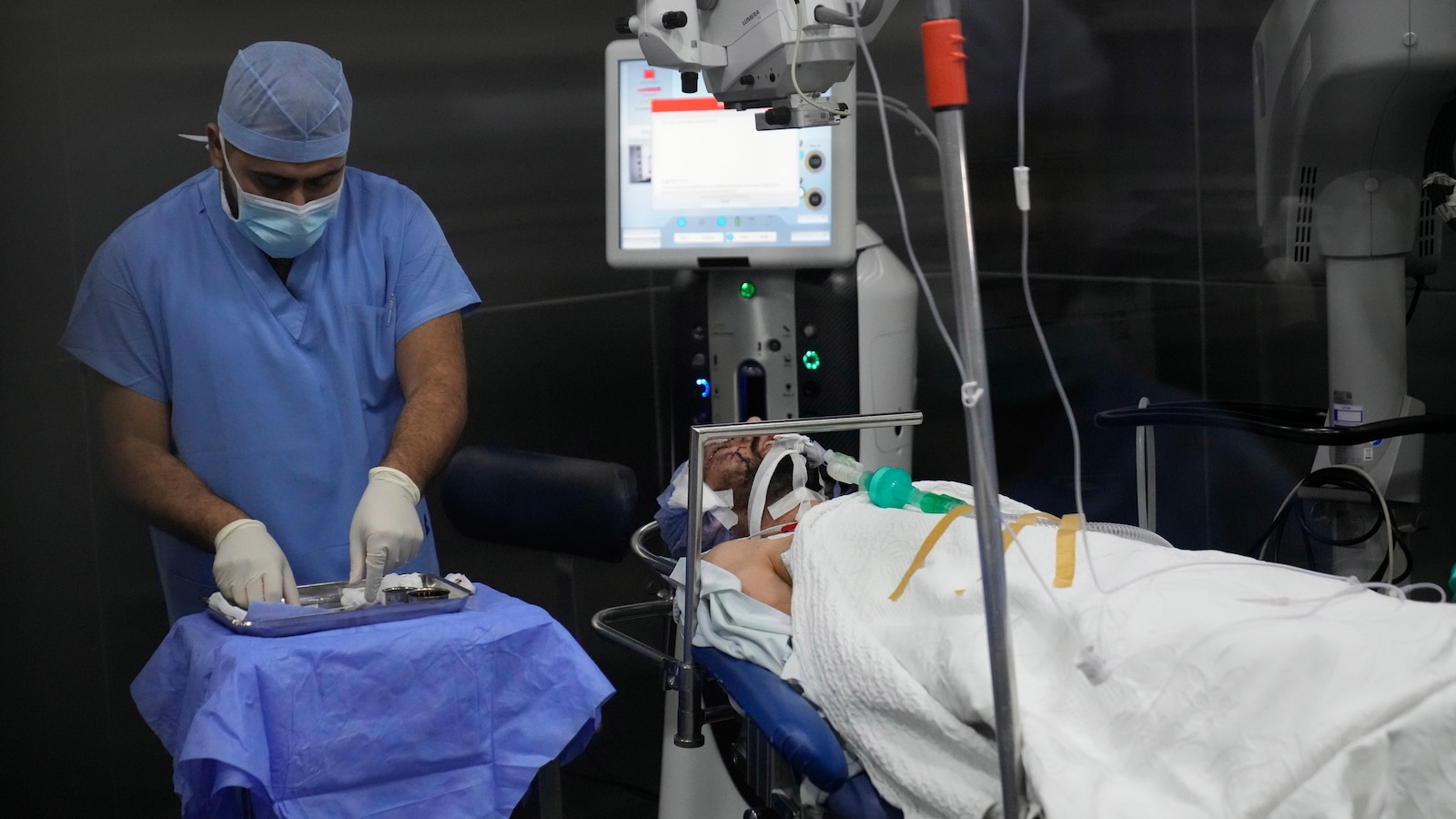Lebanese Ophthalmologist Overwhelmed by Eye Injuries After Mass Detonations
BEIRUT – Ophthalmologist Elias Jaradeh has been working tirelessly for almost a week, struggling to keep up with the influx of patients suffering from eye injuries following the mass detonation of pagers and walkie-talkies across Lebanon.
The explosions, which occurred on Tuesday and Wednesday of last week, resulted in at least 39 deaths and over 3,000 injuries, many of them life-altering. While authorities haven’t released details on the number of people who lost their eyesight, Dr. Jaradeh has performed countless eye surgeries in multiple hospitals, managing to save some patients’ vision while others are left permanently blind.
“It’s a tragedy,” Dr. Jaradeh said, fighting back tears at a Beirut hospital. “Seeing so many people with eye injuries, mostly young men, but also children and young women, arriving at the same time is overwhelming.”
The detonations, widely believed to be orchestrated by Israel, targeted Hezbollah militants, but many civilians were caught in the crossfire. The devices were detonated remotely, and because they received messages prior to exploding, many victims were looking at the devices when they detonated, resulting in severe hand, face, and eye injuries.
Veteran Lebanese eye doctors, seasoned by years of dealing with the aftermath of wars, civil unrest, and explosions, have never witnessed such a harrowing event.
Dr. Jaradeh, also a lawmaker representing south Lebanon, described the horrific injuries he encountered, noting that most patients at his ophthalmology specialty hospital suffered significant damage to one or both eyes, with plastic and metal shrapnel embedded in their eyes.
The sheer scale of the eye injury crisis echoes the devastation of the 2020 Beirut Port explosion, where hundreds of tons of ammonium nitrate detonated, killing over 200 people and injuring thousands more. Dr. Jaradeh, who also treated victims of that devastating explosion, describes the current situation as far more intense due to the sheer volume of eye injuries.
“We managed to contain the shock after the Beirut Port blast within 48 hours, but we haven’t even reached that point yet with this,” he said, his voice heavy with emotion.
The emotional toll of the crisis is immense. Dr. Jaradeh acknowledges the difficulty of separating his professional duty as a doctor from the emotional weight of the situation.
“Despite what we’re taught in medical school about emotional detachment, it’s impossible to ignore the sheer number of wounded,” he said. “This is a war on Lebanon, a war on humanity.”

